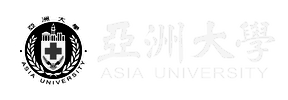View count:
1904
Tin nổi bật
 Taiwan Education Authority
Taiwan Education Authority
為落實大學創新及發展特色,積極推動高等教育多元及彈性發展,強化育才留才攬才措施,並透過提升大學品質及高教多元研究能量,強化國際競爭力,以及藉由產學研合作及在地連結,擴散大學研發能量及落實社會責任。另為銜接十二年國民基本教育,進行多面向綜合考量,調整大學多元入學方案,以因應學生之自主與差異化學習。相關重點工作如下:一、推動高等教育深耕計畫
引導大學發展特色、提升教學品質,維護學生平等受教權,並追求國際一流地位及發展卓越研究中心,自107年起推動「高等教育深耕計畫」(下稱高教深耕計畫),分為第一部分「全面性提升大學品質及促進高教多元發展」(維護學生平等受教權),以及第二部分「協助大學追求國際一流地位及發展研究中心」(強化國際競爭力)。108年計補助153校,並補助24校辦理特色領域研究中心計畫。
二、加強育才留才攬才,提升國際競爭力
國際優秀教研人才,讓國際人才的學術能量能在臺灣學術環境扎根,提升我國高等教育之國際影響力,自107學年度起辦理「教育部協助大專校院延攬國際頂尖人才實施計畫」(簡稱玉山學者計畫),提供符合國際競爭之薪資待遇及其他行政措施,以協助各校延攬國際頂尖人才,並與國內教師組成研究團隊,提升國內教研環境,108年計核定32案(玉山學者13案、玉山青年學者19案)。另大專校院得自訂支給規定,以高教深耕計畫經費執行彈性薪資,以鼓勵國內大學優秀教師(含具潛力年輕教師)留臺任教,108年計有1,068位教師受益。
三、強化產學研鍊結,擴散大學研發能量
為培育博士級研發人才,促進大學研發成果使用效益最大化,讓創新技術根留臺灣,落實大學社會責任,以提升國家競爭力及創造產業價值,近年來業針對人才、技術、資金、土地等面向,進行全面性法令盤點,並推動相關產學政策,以協助學校與產業建立長期合作關係,達到產學共榮、共創新局的效益。
四、推動大專校院社會責任實踐計畫
以「在地連結」與「人才培育」為核心,引導大專校院以人為本,從在地需求出發,並透過人文關懷與協助解決區域問題之概念,強化大專校院與區域城鄉發展(社區、產業、文化、智慧城市)之在地連結合作,鼓勵教師帶領學生以跨系科、跨團隊或跨校串聯之方式,或結合地方政府及產業資源,共同促進在地產業聚落、社區文化創新發展,以符應國際高等教育發展趨勢,108年補助114校、220件計畫。
五、精進大學考試招生制度與配套方案
秉持國家人才培育整體目標,以及高中108課綱強調素養、跨領域及多元選修之精神,未來大學招生規劃以「多資料參採、重視學習歷程」之方式選才,除入學考試成績外,將更重視考生在校修課歷程及多元表現;另透過建置高中學習歷程資料庫、推動大學招生專業化、補助大考中心配合108課綱課程,建立素養題庫與發展卷卡合一試卷架構,積極協助大學選才與高中育才的緊密銜接。
六、推動「弱勢學生助學計畫精進措施(校外租金補貼)暨新世代學生住宿環境提升計畫」
為減輕大專校院弱勢青年學生校外租屋負擔,擴增校外學生宿舍並強化校外賃居安全,提升校內宿舍量與質,營造學生宿舍成為年輕世代學生學習空間,自108年9月啟動「弱勢學生助學計畫精進措施(校外租金補貼)暨新世代學生住宿環境提升計畫」,4大策略措施包含「校外弱勢學生租金補貼」、「校外興辦學生社會住宅空床補助」、「校內宿舍建築貸款利息補助」及「校內宿舍規劃設計整體改善補助」。
In order to implement the innovation and development characteristics of universities, actively promote the diversified and flexible development of higher education, strengthen the measures of cultivating and retaining talents, and strengthen the international competitiveness by improving the quality of universities and the diversified research energy of higher education. Ground connection, spread the university's R&D energy and implement social responsibility. In addition, in order to link the twelve-year national basic education, we will conduct multi-faceted comprehensive considerations and adjust the multiple university admission plans to accommodate students' independent and differentiated learning. Related key tasks are as follows:
1. Promote the plan for deep cultivation of higher education
Guide universities to develop characteristics, improve teaching quality, safeguard students' equal rights to receive education, and pursue world-class status and develop excellence research centers. Since 107, the "Higher Education Deep Cultivation Program" (hereinafter referred to as the "Higher Education Deep Cultivation Program") has been promoted. The first part is "To comprehensively improve the quality of universities and promote the diversified development of higher education" (to safeguard the equal rights of students to receive education), and the second part is to "Assist universities in pursuing world-class status and developing research centers" (enhancing international competitiveness). In 108 years, 153 schools will be subsidized, and 24 schools will be subsidized for special field research center projects.
2. Strengthen the cultivation of talents, retain talents, and enhance international competitiveness
International outstanding teaching and research talents allow the academic ability of international talents to take root in the academic environment of Taiwan and enhance the international influence of China’s higher education. Since the 107 academic year, the Ministry of Education will assist the colleges and universities to recruit top international talents. Yushan Scholars Program), provide salary and other administrative measures that are in line with international competition to assist schools in recruiting top international talents, and form research teams with domestic teachers to improve the domestic teaching and research environment. In 108 years, 32 cases were approved (Yushan Scholars 13 Case, 19 case of Yushan Young Scholar). In addition, colleges and universities can set their own payment regulations and implement flexible salaries with the funds of the higher education deepening program to encourage outstanding teachers (including young teachers with potential) in domestic universities to stay in Taiwan. In 108 years, 1,068 teachers have benefited.
3. Strengthen the linkage of production, education and research, and spread the R&D energy of universities
In order to cultivate doctoral level R&D talents, maximize the use of university R&D results, allow innovative technologies to stay in Taiwan, and implement universities’ social responsibilities to enhance national competitiveness and create industrial value. In recent years, the industry has focused on talents, technology, capital, land, etc. For the purpose, conduct a comprehensive inventory of laws and regulations, and promote related industry-university policies to assist schools and industries to establish long-term cooperative relations to achieve the benefits of industry-university co-prosperity and joint innovation.
Fourth, promote the social responsibility practice plan of colleges and universities
With "local connection" and "talent cultivation" as the core, we will guide the colleges and universities to be people-oriented, start from the local needs, and through the concept of humanistic care and assistance to solve regional problems, strengthen colleges and universities and regional urban and rural development (community, industry , Culture, and smart cities), encourage teachers to lead students through cross-department, cross-team, or cross-school linkage, or combine local government and industrial resources to jointly promote the innovation and development of local industrial settlements and community culture. In response to the development trend of international higher education, 114 schools and 220 projects were subsidized in 108 years.
Fifth, improve the college entrance examination system and supporting plans
Adhering to the overall goal of national talent cultivation, and the spirit of high school 108 curriculum syllabus emphasizing literacy, cross-field and multiple electives, future university admissions planning will adopt the method of "multiple materials and focus on learning process" to select talents. In addition to entrance examination results, Pay more attention to the examinee's course history and diversified performance; in addition, through the establishment of a high school learning history database, the promotion of university admissions specialization, the subsidy of the university examination center and the 108 syllabus courses, the establishment of a literacy question bank and a development paper card integrated examination paper structure, actively Assist the close connection between university selection and high school education.
6. Promote the "Intensive Measures for the Underprivileged Student Assistance Program (Off-campus Rent Subsidy) and the New Generation Student Accommodation Environment Improvement Program"
In order to reduce the burden of off-campus rental housing for disadvantaged young students in colleges and universities, expand off-campus student dormitories and strengthen the safety of off-campus renting, improve the quantity and quality of on-campus dormitories, and create student dormitories as learning spaces for young students. "Student aid plan improvement measures (off-campus rent subsidies) and new generation student accommodation environment improvement plan", the four major strategic measures include "off-campus disadvantaged student rent subsidies", "off-campus social housing subsidies for students", "on-campus dormitories" "Construction Loan Interest Subsidy" and "Overall Improvement Subsidy for Campus Dormitory Planning and Design".
 |
 |
 |
 |
Why You Need to Study in Taiwan.pdf |

 Ngày hội giáo dục đại học Đài Loan tại Việt Nam
Ngày hội giáo dục đại học Đài Loan tại Việt Nam